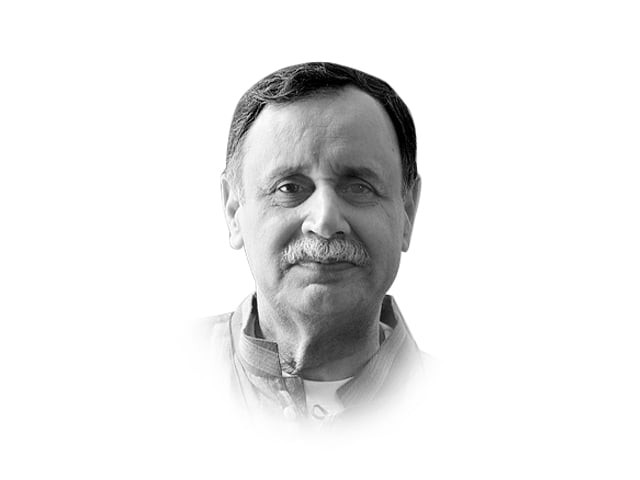Reforms that refuse to arrive
ECP has always conducted elections with deficiencies, delays and discrepancies

The writer is a health, safety and environment consultant. He tweets @saynotoweapons
The electronic and biometric voting machines have been the norm in many countries. The ECP has, however, insisted on its age-old habits — using over 1.7 million plastic ballot boxes, 220 million ballot papers, ‘hard to verify’ thumb impressions, tonnes of magnetic ink and an inefficient method of vote counting. Just the process of placement of stamps on ballot papers has yielded over 1.6 million rejected votes in 2018. These processes are hugely vulnerable to errors. All this could have been easily eliminated had the ECP opted for NADRA-linked biometric machines.
The 2018 elections cost us Rs40 billion. Only the purchase and printing of ballot papers was a dent of Rs2.2 billion. Most of these expenses could be avoided if the ECP would adopt biometric verification along with electronic voting machines. Collectively, they ensure that every voter can be uniquely identified by his/her CNIC and biometric impression. A second vote cannot be cast against the same CNIC from any other location, while the vote counting is done electronically and can be monitored in real time from a central location.
The elections could be held province-wise and spread over 3 to 4 days. This enables reuse of the same equipment and personnel, shorter queues and improved voter turnout. The electronic voting machines would eliminate the nagging ‘rejected’ votes, the saga of the Forms 45, 46 and 47 and the error-prone manual vote-counting system.
Approximately 6 to 8 million voters were disenfranchised because their votes were listed at the city of their permanent home address. Likewise, more than seven million overseas Pakistanis were disenfranchised because the ECP and the parliamentarians would not trust a modern technology-based solution. The ECP has failed to discover an address change procedure that does not involve tedious bureaucratic hassles of visiting ECP offices, filling forms, appending photocopies and wasting two days.
Lessons could be learnt from how confidential electronic banking transactions are carried out and how NADRA-linked phone SIMs are issued at thousands of outlets.
The existing practice of contesting election on multiple seats and then making the state pay for by-elections should be eliminated. Contestants’ affidavits and declarations ought to be placed on the ECP’s website at least four months prior to the elections. This should give ample time to all parties for scrutiny and raising objections.
The responsibility of raising objections to the information declared by a candidate has been traditionally passed on to rival candidates. This ought to be the responsibility of the ECP. We have had scores of parliamentarians with fake degrees, dual nationalities, criminal records, financial irregularities and ongoing court cases. This ought to cease and the ECP — in coordination with other government organisations — ought to create its own fool-proof scrutiny mechanisms.
The representation of women in parliament is also much smaller. The current laws requiring political parties to field at least 5% women candidates on general seats must be raised to at least 10%. Sadly, the majority of women-reserved seats are gifted out to close relatives or friends of senior party leaders, further reinforcing the concentration of power within a small coterie of ruling families. There is thus a need to rethink the process of nomination on reserved seats. Receiving applications from the public, defining the criteria and asking a larger group to make selections could be an option.
The existing electoral processes are obsolete, faulty and dysfunctional. It would be best for the ECP to learn from the tribal wisdom of Dakota Indians, which suggests that when you discover that you are riding a dead horse, the best strategy is to dismount.
Published in The Express Tribune, August 29th, 2018.
Like Opinion & Editorial on Facebook, follow @ETOpEd on Twitter to receive all updates on all our daily pieces.














COMMENTS
Comments are moderated and generally will be posted if they are on-topic and not abusive.
For more information, please see our Comments FAQ